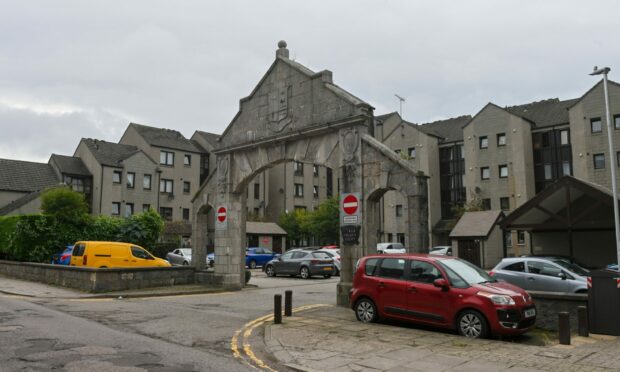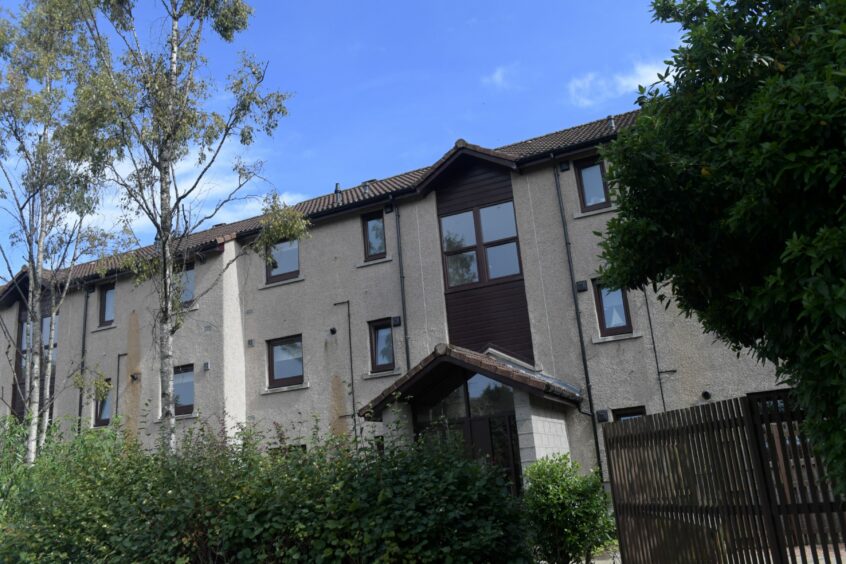There are at least 104 social housing tenants in the north-east who have been forced to shut off their gas heating because they can’t afford spiralling bills.
The boss of Langstane Housing Association has warned residents have been capping their gas in a desperate attempt to save cash.
Some are instead relying on electric meters which are actually more expensive to run.
The housing association, which has thousands of residents in Aberdeen, Aberdeenshire and Moray, said 104 so far have asked their energy supplier to cut off gas.
The housing association’s chief executive Helen Gauld said: “More and more we are finding tenants are coming to us to request their systems are capped – that basically means it stops the gas getting into their property.
“It is purely down to affordability.
“It is really worrying how people are so worried about energy costs.
“This is actually living without fuel.
“If we go through a winter with people not having any heating types available to them that is not acceptable in this day and age.”
Energy price cap effects
The disturbing news comes as the watchdog Ofgem confirmed energy prices for British households will rise by 80% by October, with further rises expected as a result of the energy cap in January and April.
The increase means the average UK household will pay £3,549 a year for energy, up from £1,971.
In comparison, the average annual bill in October 2021 was just £1,400 a year.
Ms Gauld further highlighted that households with an income of £30,000 a year are now facing fuel poverty.
She estimates that 80,000 households in Aberdeen will soon be forced to spend more than 10% of their household income on fuel.
Fuel poverty
Those who are increasingly faced with having to shut off their gas entirely often use electric heaters on a meter in order so they can use heat to meet their meagre budget.
She said: “Quite often those people who have electric metres in their properties are actually paying more for their fuel and energy than you and I.”
The housing association has a number of ways it supports tenants including a welfare advisor who supports 72 tenants with their benefits, which includes difficulty in paying bills, but increasingly they are limited in how much they can help.
“We have staff who help out tenants get the best deal – there are no best deals at this moment in time,” she said.
“They are not able to switch provider if their tariffs are too high.”
Energy crisis: See how your fuel bills are set to rocket across the north and north-east
Where possible the group, which is a registered charity, has been able to access some cash from the Housing Association Charitable Trust Energy Fund to provide energy vouchers, the Fairer Aberdeen Fund which is allocated by Aberdeen City Council and the Arnold Clark Community Fund, which was founded by the billioniare family owners of the car dealership, albeit it is currently closed to applications.
These funds have been tapped to help residents with top ups and food vouchers but this is “a drop in the ocean”, she said.
She added: “We are applying to the Scottish Government’s fuel insecurity fund which opens on Monday but there is a limited £2m available and given the current economic crisis, we think this fund will be oversubscribed within a very short period of time.
“It is a perfect storm at this moment in time.”
Langstane in the community
Langstane was founded in 1977 and mainly supports 4,215 people, most of whom live on their own, although they also support a number of families.
She said joblessness was also an issue due to the increasingly poor economic climate.
“We find a higher propertion of our tenants are not working at this time,” she said.
“That’s not through choice. But there are no jobs you can get yourself settled employment.”
She said government support should be targeted at “those who need it most”.
“Even those on a £30,000 income would be deemed to be in fuel poverty. That is 80,000 housholds in Aberdeen. Even people who are working are really struggling now to budget in the future.
“If the predictions are right, if you are in a social housing tenancy with very little means to increase your income these are very worrying times for you.
“We are seeing a rise in mental ill health.
“That has always been a concern for us but it is certainly increasing.”



Conversation